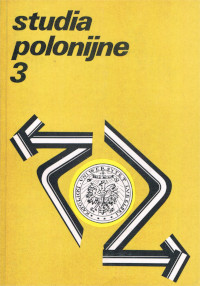The Inspectorate of Religious Instruction for Polish Schools in West Germany (1945-1950)
Main Article Content
Abstract
Among over two million Poles deported to the German Reich during the Second World War there were about 100-130 thousand children and young people of school age. Not all of them could return to their own country immediately after the war ended. Those people, waiting either for properly organized repatriation or emigration were brought together in international or Polish refugee camps. Not only was it necessary to provide for them proper living conditions (the matter was taken over by such international organizations as U. N. R. R. A. and I. R. O.), but also to organize their social, educational and cultural life as well as religious care. Under those singular circumstances a particular role was played by Polish clergy and teachers. The priests set up Polish pastoral care with the Ordinary, Diocesan Chancery and „normal” pastoral network all over West Germany, while the teachers who numbered nearly four thousand provided Polish schooling for children and young people. The education was controlled by the Central Office for Polish Education in Germany, and since the middle of 1946 by the Central Committee for School and Educational Affairs.
To coordinate religious instruction at schools and extra-school catechization the Polish Diocesan Chancery in Germany set up in September 1945 the Ispentorate of Religious Instruction for Polish Schools in Germany. Until the middle of 1946 it was a part of the Central Office for Polish Education at Püsselbüren-Lemförde as the Department of Religious Education. Later it became an independent agency of the Diocesan Chancery by the Representation of the Polish Red Cross in Germany (Lemförde-Quakenbrück-Badbergen-Oerlinghausen). The Head of the Inspectorate was Father Pawel Kajka (the Polish pastor in Munich since 1952). The tasks of the Inspectorate of Religious Instruction included: (1) control of the teaching staff and level of religious instruction at schools and extra-school catechization; (2) representation of the interests of religious education at central educational authorities as well at teaching and ecclesiastical conferences; (3) development on instructions and curricula of religious instruction and their subsequent implementation; (4) inspections of religious instruction at schools and extra-school catechization; (5) ministering to Polish students; (6) providing textbooks and other catechetical and pastoral aids produced by the own publishing house or bought in Germany as well as distribution of publications sent from abroad. It should be mentioned that the Inspectorate published a set of textbooks for religious instruction in primary and secondary schools and the New Testament. It also distributed 105 hundred books. After the Inspectorate of Religious Instruction had been dissolved (November 1950), Polish pastoral care at schools was controlled directly by the Diocesan Chancery for Poles in Frankfort on Main.

